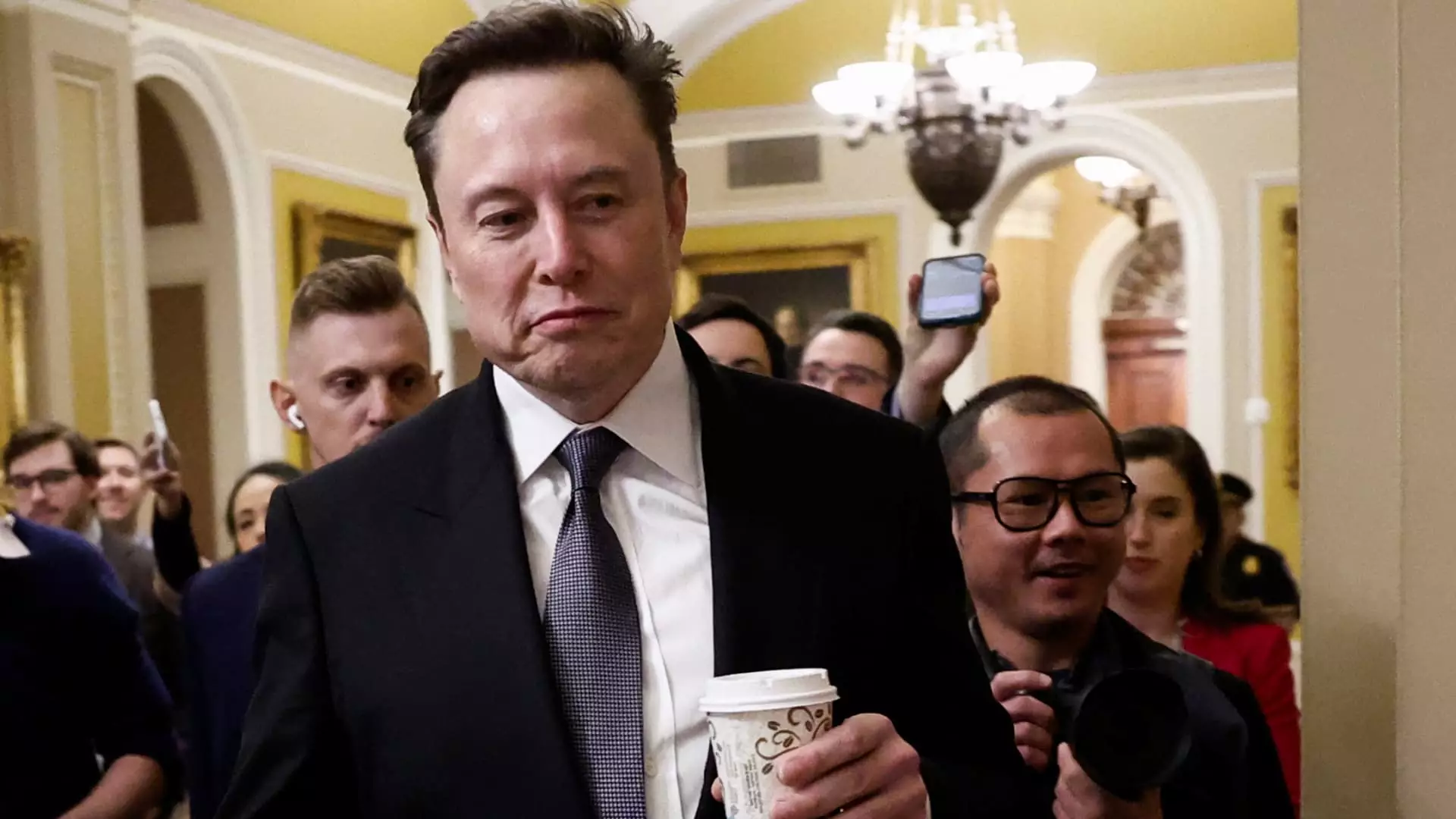In contemporary American politics, the intersection of business interests and governmental regulation often produces fascinating yet contentious outcomes. This phenomenon has been vividly highlighted by the recent tensions between House Democrats and the approach of their Republican counterparts surrounding Elon Musk’s influence in the political sphere. As government funding measures come and go, an ever-growing concern is how individual corporate interests can sway legislative decisions, shaping both the economy and national security.
Elon Musk’s Strategic Position
Elon Musk, the visionary CEO of Tesla and SpaceX, is no stranger to leveraging his business acumen within the fabric of U.S. politics. The dual pressures of maintaining an advantageous position in the burgeoning Chinese market while navigating domestic political waters have led to a precarious balancing act. Musk’s companies benefit immensely from cost-effective manufacturing capabilities and a vast consumer base within China, which in turn raises inevitable questions about the ethical implications of his strategies. More than just a businessman, Musk has seemingly transformed himself into an influential political actor, shaping narratives and policies that directly align with his corporate ambitions.
House Democrats, notably Jim McGovern and Rosa DeLauro, have openly criticized their Republican colleagues for acquiescing to what they perceive as Musk’s undue influence on the legislative process. They assert that a bipartisan bill intended to regulate U.S. investments in China was derailed, thwarting an opportunity to safeguard advanced technology sectors, particularly artificial intelligence and quantum computing, within American borders. This argument underscores a deeper dissatisfaction with the increasing power of individual investors over public policy, raising alarms about the long-term ramifications on national interests.
McGovern’s statement that “Elon had a problem” reflects a belief that Musk’s corporate interests take precedence over U.S. security concerns. The Democrats’ apprehensions are compounded by reports of SpaceX withholding services over geopolitical disputes, which raises an eyebrow regarding Musk’s allegiances. This perceived duplicity highlights the potential conflicts that arise when business interests align too closely with foreign governments, thereby further complicating loyalty to national interests.
The passing of a stopgap funding bill without the contentious regulatory provisions signals a significant turn in congressional dynamics, illustrating how swiftly governmental priorities can shift under external pressure. By successfully circumventing a government shutdown, Congress demonstrated a willingness to negotiate; however, the absence of regulations on investments in tech sectors rouses concerns about the unregulated flow of capital into potential adversarial territories. How exactly does this absence play into Musk’s narrative? It raises questions about the long-term sustainability of American technological advancements if left unchecked in foreign markets like China.
Moreover, the interaction between Musk and former President Donald Trump adds a further layer of complexity to the discussion. It appears as if Musk is positioning himself not just as a business leader but as a political player with the ability to influence critical decisions. His financial backing of Trump only furthers this narrative of a new breed of corporate governance wherein the lines between business and politics blur alarmingly.
As the political landscape continues to evolve, the interplay between corporate influence and regulatory frameworks will remain a hotbed of controversy. With figures like Musk leading the charge, challenges arise not only for legislators but also for the public as they navigate the delicate balance between economic growth and national security. The events surrounding Musk and Congress serve as a glaring reminder that the world of business is not separate from the political arena; rather, they are intricately interwoven.
The implications of these interactions extend beyond immediate funding decisions and delve into the very fabric of how democracy operates in a capitalist society. As stakeholders grapple with these issues, the outcome of this delicate dance remains uncertain—one that will undoubtedly shape the future trajectory of American governance.

